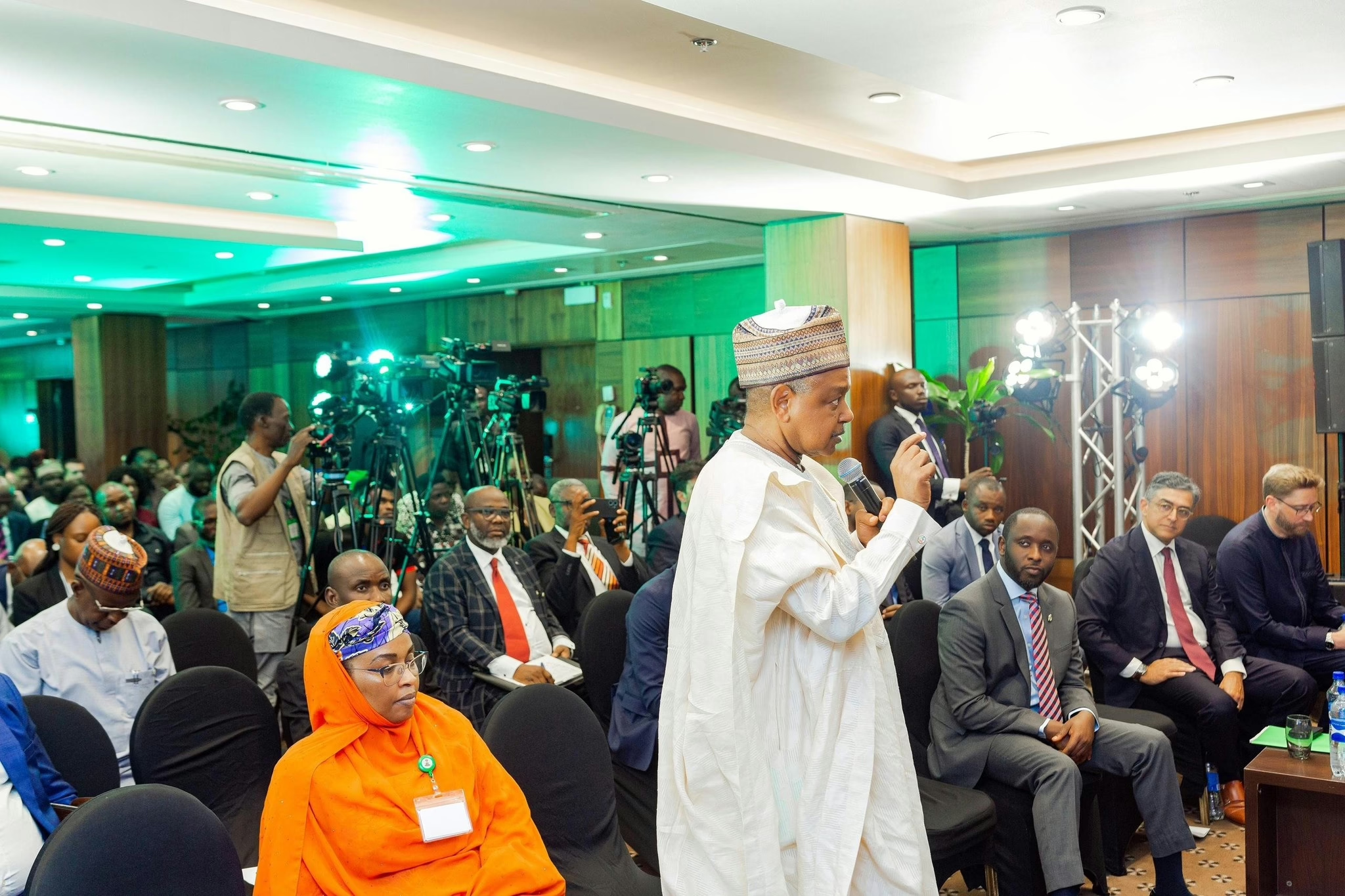
At World Bank’s Nigeria Development Update Launch, Bagudu Emphasises Grassroots Economic Development
· Says Tinubu’s economic reforms delivering positive outcomes
Minister of Budget and Economic Planning, Senator Abubakar Atiku Bagudu, reiterated on Monday President Bola Tinubu’s administration’s determination to bring development to the grassroots by transforming local government areas into centres of economic growth.
The minister, optimistic about the incremental and positive outcome of the administration’s economic reform, stated that the President was determined to ensure this translates into a better life for most Nigerians.
Speaking at the launch of the World Bank Nigeria Development Update for May 2025 in Abuja, the minister stated that Nigeria was making steady progress despite the challenges associated with reforms.
He identified the increase in revenue alongside the reduction in debt as significant evidence of the economy’s improvement resulting from President Bola Tinubu’s bold reforms.
“If you take the time series backwards, you will see that revenues have historically been adjusted in response to oil prices,” the minister said, pointing out, “There was a time when oil prices were over $100 per barrel, yet some states couldn’t pay salaries. Today, however, we are seeing increased revenues to subnationals and even a reduction in their debt levels—an enhancement of fiscal space that is both notable and necessary.”
Bagudu emphasised Nigeria’s economy’s resilience, highlighting historical fiscal constraints as well as improvements in revenue distribution and debt reduction among subnational governments.
He expressed the President’s determination to ensure that the reform’s incremental dividends translate into a better life for most Nigerians.
“We are implementing a program that brings every tier of government together to map economic opportunities across all 8,809 wards in Nigeria,” he stated, explaining, “The federal government believed that cash transfers alone would not create jobs. You must identify and cultivate economic potential in each community.”
The minister emphasised the importance of the government’s grassroots-driven strategy, which aligns with its macroeconomic reforms. “This is an inclusive approach. We believe that we can unlock significant growth by focusing on ward-level economic opportunities. Mr. President will soon formally launch this ambitious initiative.”
Reflecting on Nigeria’s ongoing budgeting efforts, Bagudu emphasised the importance of discipline, accountability, and a results-driven mindset. “We are right to say that the budget must not reflect our indulgences; it must reflect our potential. This journey is nearly two years in, and now more than ever, all organs of government must work harder and smarter to deliver prosperity for our people.”
He noted that the latest World Bank report validates the effectiveness of Nigeria’s economic reform strategy, echoing sentiments expressed by the Governor of Plateau State, Mr Caleb Muftwang.
“This report and its numbers reinforce the fact that the Renewed Hope Agenda is working,” the minister said, adding, “The governor of Plateau State rightly emphasised staying the course—not choosing winners, but supporting those who believe in Nigeria’s future. Our economy has one of the highest capacities globally to absorb technology, and our digital economy is a testament to that.”
The minister also addressed recent poverty reports, acknowledging their validity while clarifying the limitations of the underlying data.
He explained, “Yes, the figures are real, but they reflect older datasets, not the current momentum of reforms underway since June 2023. We are not playing the blame game. Mr. President campaigned for this responsibility. We are not where we want to be, but committed to doing more.”
He praised the National Bureau of Statistics (NBS) for maintaining methodological independence while under ministerial supervision, citing ongoing enhancements in labour statistics, the Consumer Price Index, and GDP assessment.
“Institutional credibility is paramount. What matters is that stakeholders are engaged, and that the public understands what these methodological changes mean for our national data,” he stated.
Bagudu concluded by recognising the essential role of investor engagement and ongoing policy calibration in infrastructure development.
He said, “Our infrastructure aspirations require that we treat willing investors with the seriousness they deserve. We have developed mechanisms to recalibrate policy in real-time, as seen in our recent engagement with stakeholders in the sugar industry. The Coordinating Minister of the Economy remains available to ensure that government performance consistently exceeds expectations.”
The event brought together top federal officials, including the Minister of Finance and Coordinating Minister of the Economy, Mr. Wale Edun, and Central Bank Governor, Mr. Yemi Cardoso; along with state representatives, development partners, and economic stakeholders to reflect on Nigeria’s progress and challenges amid ongoing reforms under the Renewed Hope Agenda.

Leave a Reply